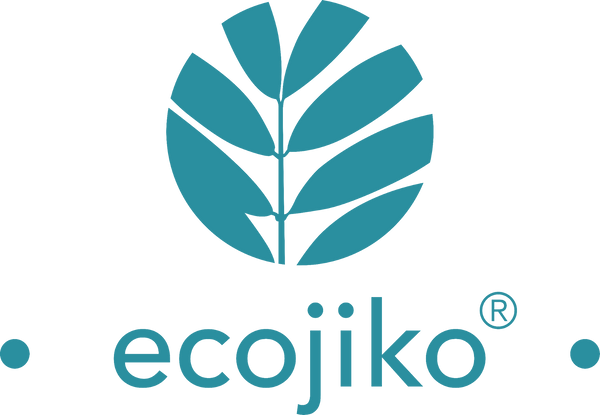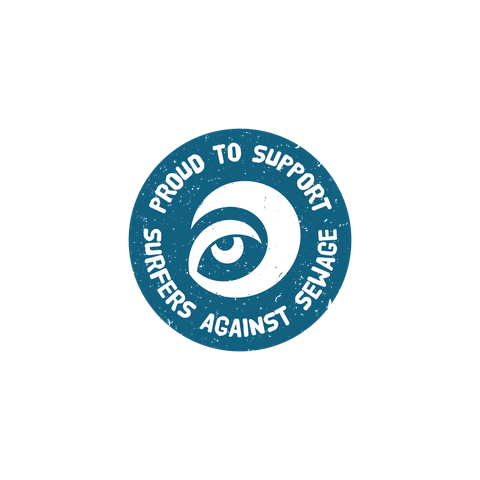With summer 2025 fast approaching, it’s time to dust off your tent, pack your bags, and reconnect with the great outdoors. But before you head for the hills, forests, or beaches, it’s worth thinking about how to make your camping trip more eco-friendly. From reducing single-use plastics to respecting nature and using planet-friendly cleaning products, there are plenty of simple, sustainable swaps that can help protect the beautiful places you love to explore.
Here at ecojiko, we’re passionate about conscious living, whether that’s at home or under the stars. Here are our top tips for eco-friendly camping in 2025, including practical advice, examples, and the ecojiko essentials to pack along the way.
1. Reuse and Refill – Ditch the Disposables
Single-use plastics still creep into many camping kits, think plastic cutlery, cling film, bottled water and throwaway plates. But with a little preparation, you can avoid all that unnecessary waste.
Start by switching to reusable alternatives. Our ecojiko Reusable Bamboo Cutlery Set is perfect for picnics and campsite dinners. It’s lightweight, durable, and comes in a handy cotton pouch, so it’s easy to pack and clean. Pair it with our ecojiko Stainless Steel Straws to enjoy your campsite drinks waste-free.
Don't forget to bring your reusable water bottles and flasks, and if you're staying at a site with refill points, top up there instead of buying bottled water. You can also bring a refillable washing-up liquid bottle filled with eco-friendly soap (more on that below!).
2. Pack Smart, Eat Smart – Eco Lunchboxes and Meal Prep
Food waste is one of the biggest environmental issues at campsites. Avoid over-packing perishables and plan your meals carefully.
To store leftovers or pack up a day’s hike-worth of snacks, our ecojiko Stainless Steel Lunchboxes are your best friend. They’re durable, plastic-free, and keep food fresh without the need for clingfilm or foil. They also double up as sturdy bowls and chopping boards, meaning you’ll need fewer items overall.
Extra tip: Shop locally near your camping destination to support small businesses and reduce the carbon footprint of your food. Bring dry goods in reusable containers from home (think oats, pasta, or trail mix in jars or fabric bags).
3. Respect Wildlife – Admire from Afar
A huge part of camping is the thrill of spotting wild animals in their natural habitat. But it’s important to do so responsibly.
- Don’t feed animals, even birds and squirrels – it can alter their natural behaviour.
- Store food securely to prevent attracting wildlife to your tent.
- Avoid using strong perfumes or fragranced items, which can disrupt animals’ senses.
- Stick to marked paths to avoid damaging habitats.
If you’re camping near the coast, always check tide times and stay clear of nesting birds or seal pups during sensitive seasons.
4. Leave No Trace – Take Only Memories, Leave Only Footprints
The golden rule of sustainable camping is leave no trace. It means leaving the environment exactly as you found it—or even better.
- Take all rubbish home, even biodegradable items like orange peels and tea bags, which can take months to decompose and attract animals.
- Use our ecojiko Swedish Dish Cloths instead of kitchen roll or paper towels. They’re super absorbent, reusable, and biodegradable when they’re worn out.
- Clean up after yourself thoroughly and use one of our ecojiko Scrubbing Brushes to clean off BBQ grills or camping stoves without plastic bristles that shed microplastics.
Even better? Make a game of litter picking with the kids before you leave camp—it’s a great way to teach respect for nature.
5. Use Natural Cleaning Products – Safe for Streams, Soil, and Skin
Conventional washing-up liquid, soaps and shampoos often contain chemicals that can harm wildlife and waterways, even if they’re labelled “biodegradable.”
Opt for natural, eco-friendly cleaning products and use them sparingly, always away from water sources. If you’re washing up, do it in a bucket or collapsible basin and scatter the water on dry soil where it won’t enter the water table immediately.
At ecojiko, we recommend pairing your eco washing-up liquid with our natural dish brushes and Swedish cloths for effective, zero-waste washing-up on the go.
6. Conserve Water – Every Drop Counts
Water can be precious when you’re camping off-grid or in remote areas. Here’s how to make it go further:
- Use a spray bottle for washing hands or dishes to use less water than pouring.
- Choose multi-use products (like a bar of castile soap that works for body, dishes and laundry).
- Don’t let taps or containers run unnecessarily.
- Collect rainwater (if permitted) for rinsing gear or clothes.
Every conscious action helps, especially in areas prone to summer droughts.
7. Borrow, Share, or Buy Second-Hand Gear
Before buying new gear for your trip, consider borrowing from friends, renting from outdoor shops, or buying second-hand. Tents, sleeping mats, backpacks and stoves are often used just once or twice and can have years of life left in them.
If you are buying new, look for sustainably made products with recyclable materials and minimal packaging and invest in quality so it lasts.
8. Go Off-Grid with Low-Impact Lighting and Energy
Rather than noisy generators or battery-powered lanterns, opt for solar-powered lights or rechargeable head torches. These save on batteries and reduce noise pollution. For charging phones or cameras, consider a small solar charger that you can clip to your backpack while hiking.
Campfires can be lovely, but not all sites allow them and they can be harmful to delicate ecosystems. Always check the rules and use designated fire pits or stoves if permitted.
9. Travel Sustainably to Your Campsite
The journey is just as important as the destination. Consider:
- Car sharing with friends or family to reduce emissions.
- Taking the train to a station close to your campsite and walking or biking in.
- Choosing campsites that prioritise sustainability, such as those certified by organisations like Greener Camping Club or Eco-Camping.
10. Spread the Word – Inspire Others to Camp Sustainably
Sustainable camping doesn’t have to be a solo effort. Chat to fellow campers about eco-friendly tips, share your kit favourites, and post photos online that show how easy it is to camp low-waste.
By modelling good behaviour, you inspire others and help protect the places you love for generations to come.
Final Thoughts
Camping connects us to the natural world in a powerful way. By making a few thoughtful swaps and decisions, you can dramatically reduce your environmental impact without sacrificing comfort or fun.
From your reusable cutlery and lunchboxes to planet-friendly scrubbing brushes and dish cloths, ecojiko has everything you need for a conscious camping trip this summer.
Let’s leave only footprints, take only memories and tread as lightly as we can.
Have your own sustainable camping tips to share? We’d love to hear them—drop us a message on Instagram or tag us in your eco adventures @ecojiko.





